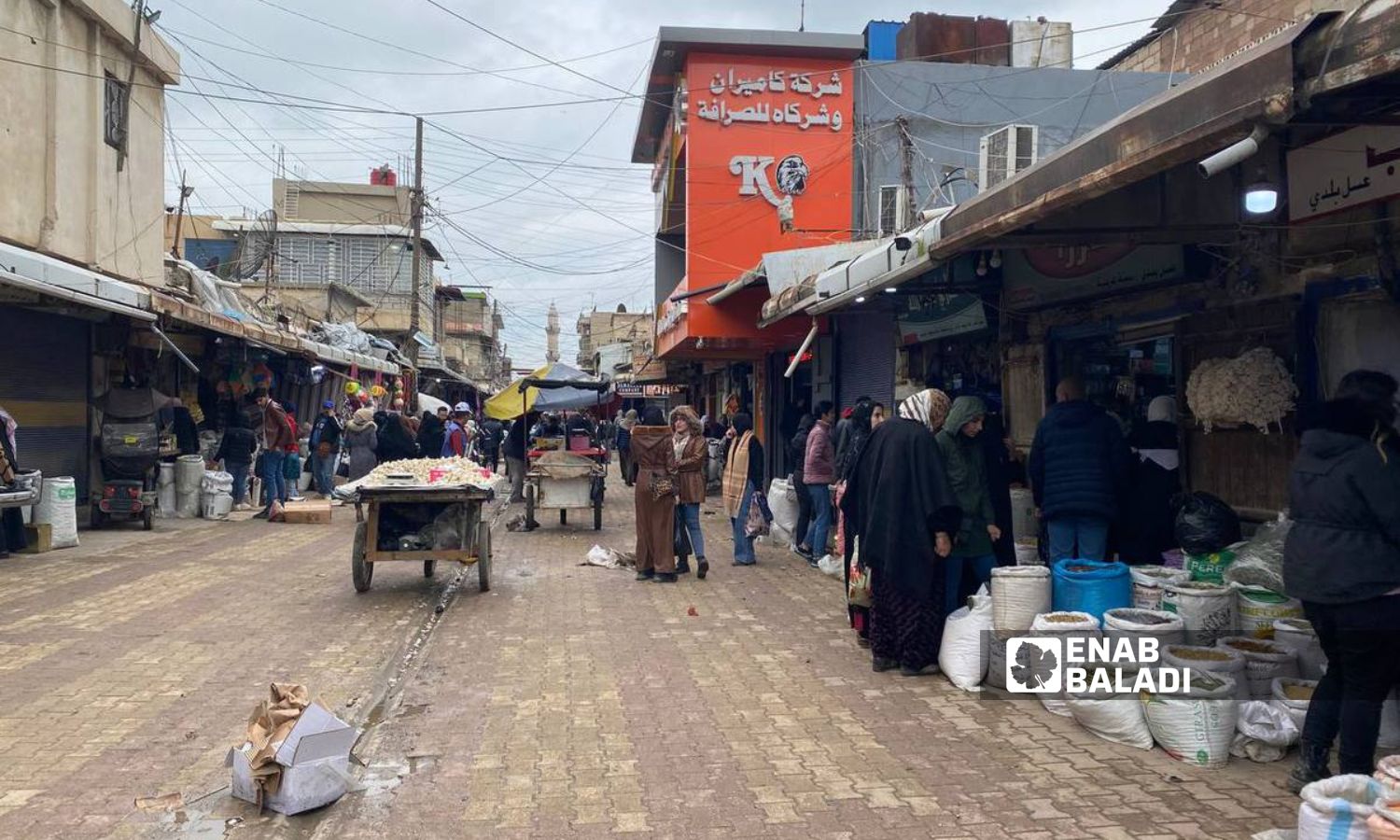



Al-Hasakah – Majd al-Salem
In the city of Qamishli in al-Hasakah, northeastern Syria, there is a notable spread of language teaching institutes, which consistently offer courses throughout the year for various ages and levels.
These institutes are experiencing a surge in attendance, and according to Enab Baladi‘s observations, the main incentive for mastering languages is to enhance one’s curriculum vitae (CV) in order to secure a job, while some students are aiming to develop themselves and pass school exams.
36-year-old Hassan al-Khalif, a holder of a degree in economics, told Enab Baladi that he strives to master English in order to gain a position within organizations operating in the region, which often require proficiency in English in many of their job advertisements.
He added that any job announcement in Qamishli usually requires applicants to be proficient in English, especially with the presence of competition to secure a job opportunity in one of the organizations that offer attractive salaries in US dollars.
The young man related the proliferation of language learning institutes to the presence of organizations, comparing salaries offered by the private sector, the Autonomous Administration, or government sector with those offered by organizations in dollars. Therefore, he desires to learn the language even if his proficiency level is very low.
In August 2023, the Autonomous Administration of North and East Syria (AANES) increased its employees’ salaries by 100%, rising from 520,000 Syrian pounds as a minimum to 1,040,000 Syrian pounds (about $70), while organizations offer salaries in dollars starting from $300 (4.5 million pounds).
Among the reasons for the rush to language institutes is the decline in education or parents’ dissatisfaction with the educational level in schools. Therefore, some insist on enrolling their children, who are students of basic and secondary education certificates (Baccalaureate), in language teaching institutes.
39-year-old Hassan al-Sheikh, a resident of Qamishli and the father of a ninth-grade student, told Enab Baladi that he enrolled his daughter in a public school suffering from severe overcrowding in the number of students per class, and also from neglect by teachers, especially in English and French.
He mentioned that his daughter’s language level had declined in her new school, which compelled him to register her in a language institute, in addition to courses in mathematics, physics, and chemistry.
Germany is the main destination for most people from the region who have sought refuge in European countries, which has increased the importance of learning German. This interest stems from the German embassy’s requirement for applicants to obtain a certificate in the German language as part of the necessary documents for traveling to Germany.
Although Hanaa (26 years old) from Qamishli has a degree in French, she is compelled to learn German after getting engaged to someone currently residing in Germany.
Hanaa told Enab Baladi that learning the German language is one of the requirements for family reunification with her fiancé, whereby the institute must be recognized like the Goethe certificate, and the language proficiency test is to be held in Beirut or Erbil, as the institutes facilitate learning the language but do not provide internationally recognized certificates.
She explained that the tuition fees for the institutes are high, starting from $250 up to $500 depending on the institute and the teaching method as well as the number of people in the course, and that some institutes deal in euros.
Hanaa also pointed out that among those learning German at the same institute are doctors and engineers who want to travel to Germany.
39-year-old Fadel al-Ali, an English language teacher, told Enab Baladi that the previous years saw a significant demand for learning languages. Institutes did not limit courses to ninth-grade students and baccalaureate as before. Now, the demand comes from different ages and educational backgrounds, as people are eager to travel or to get a job in international and local organizations, which has increased the number of language institutes to about 15 institutes in Qamishli alone.
He added that opportunities for English and other language teachers have become good and widely available, whether within institutes, organizations, or through giving private lessons.
Regarding the most commonly learned languages, al-Ali said that English comes first followed by German, then French and Russian. As for the fees, they vary in these institutes depending on the type of course, with the cost of an English language course being about $400 per level, and German about 300 euros.
if you think the article contain wrong information or you have additional details Send Correction